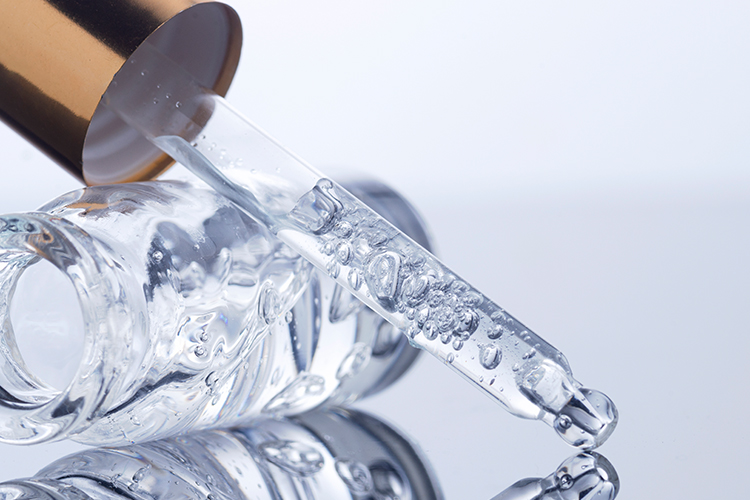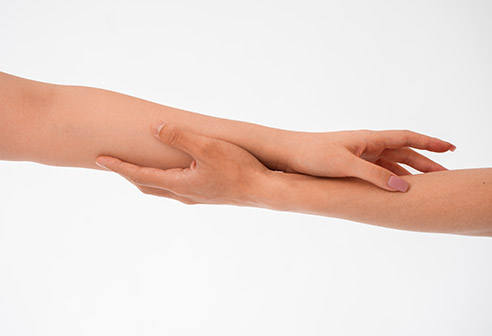
Hyaluronic acid is a humectant with the ability to hold more than a thousand times its weight in water. This substance is found naturally in the human body. For example, joint fluids, eyes, and skin are areas of our body that contain hyaluronic acid. Widely used in cosmetic and skincare products, hyaluronic acid can also be produced in a laboratory environment through a bio-fermentation process using various bacteria. As we get older, the body begins to have difficulty producing some of its basic components. As we age, the production of elastin fibers, collagen fibers, and hyaluronic acid begins to decrease. As a result, the skin loses its moisture balance, plumpness, and volume. It's possible to benefit from the water-retaining ability of the skin with hyaluronic acid supplements. Hyaluronic acid, which contributes to the healing process of wounds and the relief of joint pain, also helps delay and reduce the signs of aging on the skin. Medical Aesthetic Doctor Dr. Lida Çiteli explained what you need to know about the benefits of hyaluronic acid.
What Is Hyaluronic Acid?
Hyaluronic acid is a molecule that is naturally found in both our connective tissues and our skin. Thanks to its water-retaining capacity, it helps the skin maintain its moisture and youthful appearance. The function of hyaluronic acid varies depending on where it is found in the body. The hyaluronic acid in joints helps lubricate the space between bones, contributing to more comfortable and healthy movement. In addition, hyaluronic acid molecules in connective tissue have a supportive effect on living tissue cells, helping them to maintain their moisture. The main function of hyaluronic acid molecules in our skin is their moisturizing property. It increases skin elasticity and gives you a much healthier appearance.
The ability to bind to and trap water molecules makes hyaluronic acid an indispensable component for our body and skin health.
In addition to all of these, hyaluronic acid supports the healing process of wounds and has an effect that reduces swelling.
What Are the Benefits of Hyaluronic Acid?
The benefits of hyaluronic acid can be listed as follows:
Benefits of Hyaluronic Acid for the Skin
- Hyaluronic acid molecules allow the skin to lock in moisture for much longer and prevent the skin from losing moisture.
- It gives a much plumper, healthier, and more vibrant appearance to the person's skin.
- It provides elasticity to the skin and makes you look younger.
- When used regularly, it gives the skin a bright, radiant, and vibrant appearance.
- It helps delay or lighten the appearance of aging signs such as deep wrinkles and fine lines.
- It speeds up the wound healing process.
- Thanks to its antibacterial properties, it significantly reduces the risk of infection.
Benefits of Hyaluronic Acid for the Body
- It ensures that water molecules are transported to all cells in the body.
- It preserves the fluid in joints and muscles, allowing you to move more easily and healthily.
- It is good for joint diseases.
- Due to its antibacterial properties, it supports the body's wound healing process.
- It supports the production of collagen fibers and helps protect them.
- It contributes to the relief of dry eye complaints and the protection of eye health.
- It reduces wear and tear in the joints. For this reason, hyaluronic acid is also used in the treatment of osteoarthritis.
What Does Hyaluronic Acid Do?
Due to its molecular properties, hyaluronic acid increases the body's water-retaining capacity. When applied to the skin, hyaluronic acid keeps the skin moisturized. At the same time, hyaluronic acid, which also accelerates cell production, makes the skin much more flexible and moist.
In Which Foods Is Hyaluronic Acid Found?
Foods containing hyaluronic acid can be classified as follows;
Vegetables
- Bell pepper
- Sweet potato
Greens
- Okra
- Lettuce
- Cabbage
- Avocado
- Asparagus
- Kale
- Beans
- Peas
- Kiwi
- Spinach
- Coriander
Root Vegetables
- Carrot
- Turnip
- Onion
Fruits
- Kiwi
- Lemon
- Mango
- Mulberry
- Grapefruit
- Orange
Nuts and Seeds
- Soybeans
- Almonds
- Chia seeds
- Pumpkin Seeds
- Cashew
When Should Hyaluronic Acid Be Used?
Hyaluronic acid can be found on the market in different forms such as moisturizing cream, eye drops, and serum. People suffering from skin damage or dry skin can supplement their skin with hyaluronic acid by using these products. If you need hyaluronic acid for muscles and joints, it can also be taken orally in tablet form. In addition, people with dry eye complaints can get hyaluronic acid support in the form of eye drops.
Is Hyaluronic Acid Good for Acne?
Hyaluronic acid creates a protective barrier for our skin. This prevents the oily skin that can cause acne. It indirectly has an effect that makes the formation of acne more difficult.



